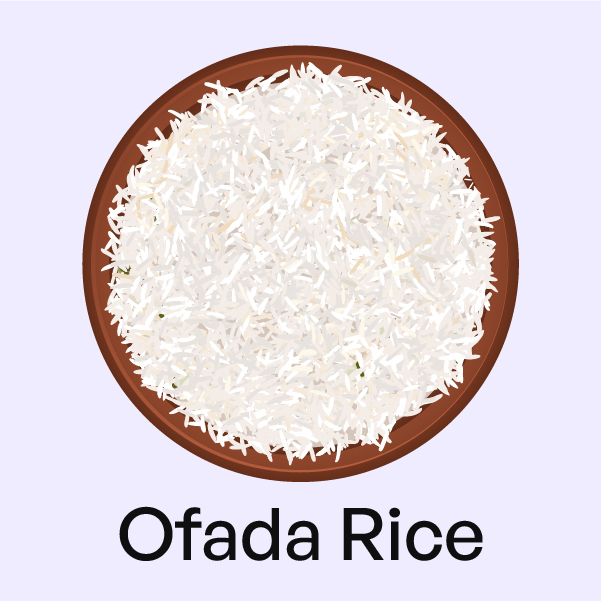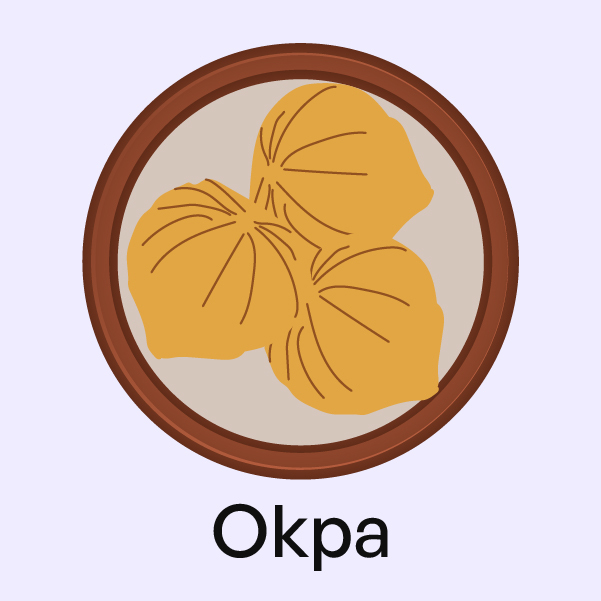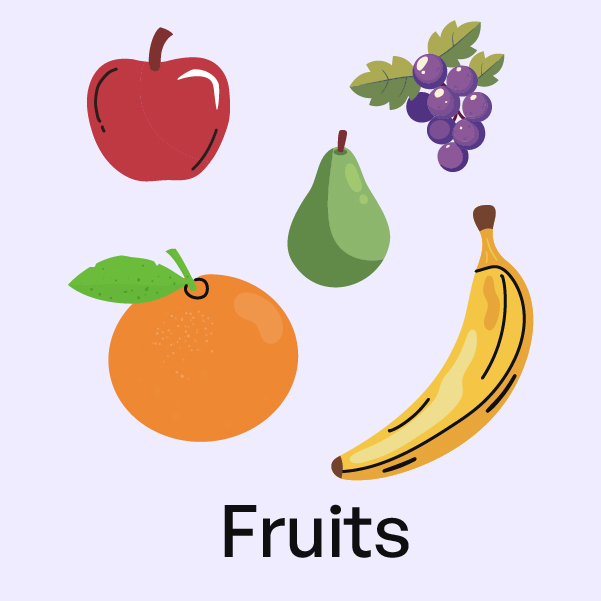Maintaining good heart health is vital for living a healthy, active life. The food you eat plays a huge role in keeping your heart strong and functioning well. A healthy heart reduces the risk of heart diseases such as stroke, heart attack, and high blood pressure.
For Nigerians, adding local foods that are good for the heart is easier than you think. From leafy soups to wholesome grains, Nigerian cuisine offers a range of heart-friendly foods that can improve your overall well-being. In this article, we’ll explore what it means to have good heart health, the activities that can promote a healthy heart, and which Nigerian foods are good for your heart.
What does it mean for one to have good heart health?
Good heart health means having a strong, well-functioning cardiovascular system that supports your body’s daily activities. It involves maintaining healthy cholesterol levels, stable blood pressure, and good circulation. Achieving this can significantly reduce the risk of heart diseases like hypertension, stroke, and heart attacks.
A healthy heart efficiently pumps blood throughout the body without strain. The heart thrives on a balanced diet, regular physical activity, and managing stress. When you take care of your heart, it translates to a longer life, more energy, and overall well-being.
Here are some indicators of good heart health:
Normal blood pressure: Your blood pressure should be within a healthy range.
Healthy cholesterol levels: High-density lipoprotein (HDL) cholesterol, often referred to as “good” cholesterol, should be higher than low-density lipoprotein (LDL) cholesterol, the “bad” cholesterol.
No history of heart disease or stroke: You should not have experienced heart attacks, strokes, or other cardiovascular issues.
Regular physical activity: Engaging in regular exercise helps strengthen your heart and improves blood circulation.
Healthy weight: Maintaining a healthy weight reduces the strain on your heart.
No smoking: Smoking damages blood vessels and increases the risk of heart disease.
Limited alcohol consumption: Excessive alcohol intake can harm your heart.
What activities can be done to achieve good heart health?
Achieving good heart health requires more than just eating right; it involves adopting a lifestyle that supports cardiovascular function. Some activities you can include in your daily life are:
- Regular exercise: Engaging in at least 30 minutes of moderate activity daily, such as walking, jogging, or dancing, helps strengthen the heart and improve circulation.
- Managing stress: Chronic stress can increase your blood pressure and harm heart health. Find relaxation techniques like meditation, deep breathing, or hobbies that can reduce your stress levels.
- Maintaining a healthy body weight: Being overweight puts extra strain on the heart. Eating a balanced diet and staying active can help you maintain a healthy weight.
- Avoiding tobacco and limiting alcohol: Smoking and excessive alcohol consumption can lead to heart diseases. Cutting down or quitting these habits will benefit your heart in the long run.
- Regular health checks: Monitoring your blood pressure, cholesterol levels, and blood sugar helps catch any potential issues early, allowing for better management.
10 Nigerian foods that are good for your heart
Nigeria is blessed with many foods that can improve heart health. These foods are not only delicious but also packed with nutrients that benefit the cardiovascular system. Here are some Nigerian foods to add to your diet:
1. Local rice (Ofada and Abakaliki rice)

While white rice is often associated with unhealthy diets, local varieties like brown rice and Ofada rice are healthier options. They contain fibre, vitamins, and minerals that can benefit heart health. The high fibre content helps reduce bad cholesterol levels, which is key to preventing heart disease. Plus, they are minimally processed, preserving essential vitamins and minerals that contribute to heart health.
2. Bitter leaf soup (Ofe Onugbu)
Bitter leaf soup is a popular dish among the Igbos, known for its unique bitter taste. The leaves contain antioxidants, which help combat free radicals that can damage heart tissues. Regularly eating bitter-leaf soup can help lower blood pressure and cholesterol levels, promoting overall heart health.
3. Black soup
Originating from the Edo region, black soup is made using local herbs like scent leaf (efirin), uziza leaves, pumpkin leaves and curry leaves. All ingredients are known for their medicinal properties. Scent leaf contains compounds that improve blood circulation, while moringa helps reduce inflammation—a key factor in heart disease. This soup is a powerhouse for maintaining a healthy heart.
4. Unripe plantain flour (Amala Ogede Dudu)

Unripe plantains are low in sugar and high in fibre, making them perfect for managing cholesterol levels. When processed into flour, unripe plantain is commonly used to make swallow meals like amala. This flour is a good source of fibre and resistant starch, which can help regulate blood sugar levels and improve heart health, reducing the risk of diabetes.
5. Zobo leaves
Zobo, made from hibiscus leaves, is a popular drink in Nigeria. When prepared without excessive sugar, zobo is rich in antioxidants like anthocyanins, which help reduce blood pressure and protect the heart from oxidative stress. Zobo leaves also contain minerals like potassium and magnesium that support healthy heart function.
6. Okpa

Okpa, made from Bambara nuts, is a popular food in eastern Nigeria. This nutrient-dense meal is high in protein and fibre, both of which are excellent for heart health. The high fibre content in okpa helps regulate cholesterol levels, while the plant-based protein supports healthy blood pressure. Okpa is also low in fat, making it an ideal addition to a heart-friendly diet.
7. Acha (Fonio)
Acha, also known as fonio, is a type of grain native to northern Nigeria. It is gluten-free, high in fibre, and low in glycemic index, making it ideal for heart health. Consuming acha helps control blood sugar levels and provides essential minerals like magnesium, which supports heart function.
8. Legumes (Beans, Kidney Beans, Black-Eyed Peas)

Legumes like beans and peas are rich in plant protein and soluble fibre, which are known to lower cholesterol levels. Incorporating dishes like bean porridge or moin-moin into your diet can reduce the risk of heart disease. Additionally, legumes are low in fat and a great source of energy, making them perfect for a heart-healthy diet. But when cooking beans in Nigeria, it’s important to be conscious of the amount of oil used. Oil is one of the culprits of heart disease.
9. Oats
Though not traditionally Nigerian, oats have become a staple in many Nigerian households. Oats are a great source of beta-glucan, a type of fibre that lowers cholesterol. Including oats in your breakfast or even mixing them with local ingredients like honey and nuts can make a heart-healthy breakfast meal.
10. Fruits (Apples, bananas, oranges, pears, and grapes)

While these fruits are not native to Nigeria, they have become widely available and are excellent for heart health. Apples are rich in fibre and antioxidants; bananas provide potassium, which helps regulate blood pressure; oranges are packed with vitamin C; pears are great for cholesterol management; and grapes contain compounds that improve blood flow.
10 foods to avoid for great heart health
While it’s important to focus on foods that are good for your heart, it’s also important to know which foods to avoid. Certain foods can increase the risk of heart disease by raising cholesterol levels, and blood pressure, or contributing to obesity. Here are ten foods to limit or avoid if you want to maintain great heart health:
- Fried chicken: Deep-fried foods like chicken are high in unhealthy trans fats, which can clog arteries and increase the risk of heart disease.
- Potato chips: These popular snacks are high in salt and unhealthy fats, which can lead to high blood pressure and elevated cholesterol.
- Baked goods (Meat Pie, Fish Pie, Egg Roll): These treats are typically made with refined flour, sugar, and unhealthy fats, all of which can contribute to poor heart health.
- White rice: Highly processed and stripped of fibre, white rice can spike blood sugar levels and doesn’t provide the heart-healthy benefits of whole grains.
- White bread: Like white rice, white bread is made from refined flour, which lacks the fibre needed to regulate blood sugar and cholesterol.
- Pasta: Regular pasta is another refined carbohydrate that can lead to weight gain and elevated blood sugar levels, both of which are linked to heart disease.
- Alcohol: Excessive alcohol consumption can raise blood pressure, contribute to weight gain, and increase the risk of heart disease.
- Red meat: High in saturated fats, red meat can lead to elevated cholesterol levels, increasing the risk of heart disease.
- Tropical oils (Palm Oil, Coconut Oil): These oils are popular in Nigerian cuisine but they are high in saturated fats, which can negatively impact heart health.
- Soda: Loaded with sugar and empty calories, sodas can lead to weight gain and increase the risk of diabetes, both of which are harmful to the heart.
Nurturing your heart is all about making mindful food choices and maintaining a balanced lifestyle. By incorporating these Nigerian foods that are good for your heart into your daily meals—and avoiding foods that can harm your heart—you can take proactive steps toward a healthier heart and a happier life.
If you’re looking for more health and wellness tips for daily living, subscribe to our newsletter to live your best, healthiest life.





